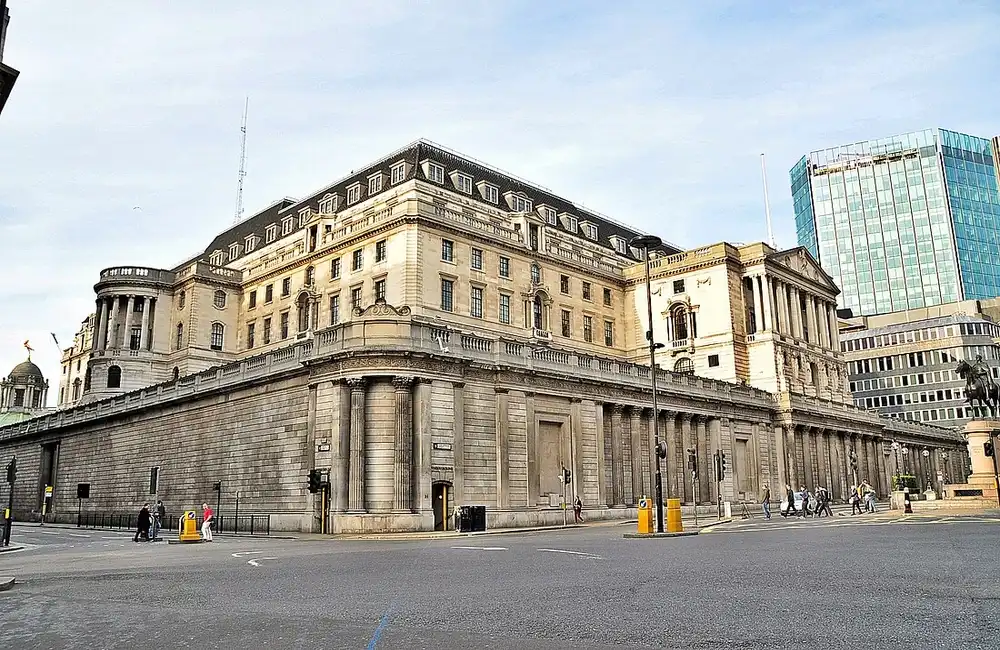Prime Minister Keir Starmer summoned Parliament to meet in an extraordinary Saturday session on 12 April 2025 to discuss a national crisis affecting industrial strength and economic resilience.
British Steel's Scunthorpe operations faced shutdown risks after Jingye Group's Chinese ownership turned down government financial support worth £500 million. The Steel Industry (Special Measures) Act 2025 resulted in an emergency government takeover of Scunthorpe operations. The strong government action demonstrates how vital domestic steel production is, but requires a thorough analysis of its effects on investors and national economic direction.
Parliamentary Recall and Legislative Action
The Parliament recalled for its sixth Saturday session since World War II, demonstrating both the critical nature and seriousness of the situation. The government intervened after Jingye withheld financing for Scunthorpe blast furnaces' raw materials and showed no intention of continuing operations.
Emergency Legislation and Authority
- The UK government receives unprecedented authority through the Steel Industry (Special Measures) Act 2025.
- The UK government gains control over British Steel’s management decisions and operational procedures.
- The government has been granted the authority to enter company premises and seize assets forcefully if required.
- Any executive measures that disrupt operations will face legal consequences.
Business Secretary Jonathan Reynolds promoted the urgent measures as vital to preserving Scunthorpe steelworks, which produces "virgin steel," the UK's sole operational facility for primary steel production from raw materials. Without intervention, immediate jeopardy threatened thousands of jobs and essential national capabilities.
Strategic Importance of Domestic Steel Production
Why such urgency? Steel is essential for critical industries, ensuring national security and infrastructure while maintaining global competitiveness.
Safeguarding Sovereignty and Security
- If the UK loses primary steel-making capability, it would become the only G7 nation that has to import all its virgin steel.
- Construction, defence, automotive and rail networks would experience major disruptions due to compromised operations.
- The UK would become vulnerable to volatile international markets, which would put domestic projects at risk due to geopolitical instability.
The Economic Ripple Effect
The shutdown of Scunthorpe would destroy roughly 3,000 direct jobs and disrupt the supply chain, endangering regional and national economic stability. The high costs associated with restarting cooled blast furnaces create significant financial barriers that prevent any practical resumption of operations.
James Tice from the Grantham Research Institute declared that nationalisation serves political interests yet fails as a lasting resolution for steel production unless it incorporates true modernisation and carbon transition.
Implications for Investors
A Shift in Investor Perception
This government action indicates tighter control from authorities over vital industries for national security that are of interest to investors in essential UK sectors. This precedent raises concerns around:
- The government's current move suggests future possibilities for nationalisation within strategic sectors like energy or telecommunications.
- Foreign investments from nations with existing trust barriers may face enhanced regulatory controls.
- Investors prioritising enduring stability in key industries might appreciate the government's forceful strategies to build resilience.
Opportunities within Intervention
Government intervention may initially shake market confidence, but it provides new paths toward industrial modernisation. Investors interested in sustainable technology like electric arc furnaces for low-carbon steel production can partner with public decarbonisation initiatives to create profitable sustainability opportunities.
Long-Term Sustainability of Government Control
Balancing Intervention with Viability
Decisive government action exists, but extended state control presents significant risks for the future. State-run organisations have been consistently challenged by operational inefficiencies and financial mismanagement throughout history. The Scunthorpe plant of British Steel generates an operating deficit of more than £230 million each year. Successful intervention requires policymakers to provide a detailed plan for:
- Stabilising British Steel financially.
- The government must secure private-sector investment as operational viability returns.
Innovations in the Steel Industry
The modernisation of the UK steel industry stands as a foundational element for achieving sustainable long-term resilience. International efforts to produce environmentally friendly steel through hydrogen-based direct reduction methods continue to gain momentum. The UK’s investment in sustainable steel technologies will establish it as a sustainable steel leader while drawing green-energy investors and supporting its carbon-neutrality targets.
A Precedent-Setting Intervention
The UK government’s preservation efforts for British Steel demonstrate an unprecedented change in its strategy to safeguard essential industries from market volatility and foreign acquisition threats. The measures implemented enable British Steel’s Scunthorpe facility to receive a short-term survival boost. The steel industry requires ongoing substantial investments in operational activities and innovative developments to achieve long-lasting competitive sustainability.
Investors should recognise this situation as a reminder to incorporate governmental policy changes in their assessments of nationally strategic industries. Adapting to the evolving landscape provides opportunities for long-term growth, supporting the revitalisation of the UK's industry.
Takeaway for Stakeholders
Businesses and investors must stay alert while monitoring the UK steel sector's policy changes and technological progress. British Steel's unfolding future will establish a vital standard for achieving equilibrium between governmental regulation and industrial sustainability while maintaining market trust in a globally connected environment.
British Steel stands at a critical intersection where the UK's approach will determine the nation's industrial and economic direction for future generations.

















